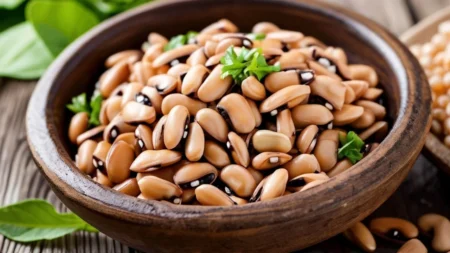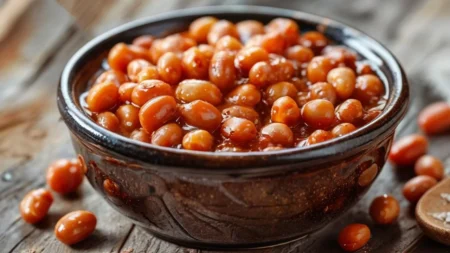As you navigate the journey of healthy aging, weight management can be a significant challenge. This comprehensive guide aims to provide you, the senior, with effective strategies and practical tips to manage your weight and maintain overall health and well-being. As we age, our bodies go through various physiological changes that can make weight management for seniors more complex. This article will explore the unique considerations for seniors, including metabolic shifts, the impact of medications and health conditions, and the importance of adopting a balanced, nutrient-dense diet and regular physical activity. By understanding these factors and implementing personalized approaches, you can achieve your senior weight loss goals and enjoy a higher quality of life during your golden years.
Key Takeaways
- Understand the metabolic changes and health conditions that can impact weight management for seniors.
- Adopt a balanced, nutrient-dense diet to support muscle maintenance and overall health.
- Incorporate regular physical activity, such as low-impact exercises, to maintain muscle mass and improve overall fitness.
- Overcome barriers and stay motivated by enlisting support from family and friends, and seeking professional guidance.
- Celebrate small victories along your healthy aging journey to maintain your momentum.
Understanding the Challenges of Weight Management for Seniors
As we grow older, our bodies undergo a range of metabolic changes that can make weight management more complex for seniors. One of the primary challenges is the gradual loss of muscle mass, known as sarcopenia, which can lead to a slower metabolism and increased difficulty maintaining a healthy weight. Additionally, many seniors face the burden of multiple chronic conditions, such as heart disease, diabetes, or arthritis, which can further impact their ability to manage their weight.
Metabolic Changes with Age
As we age, our age-related metabolism undergoes a natural decline, making it harder to maintain a healthy weight. This metabolic shift is often compounded by the loss of muscle mass, a condition known as sarcopenia. This gradual decrease in muscle tissue can result in a slower metabolism, making it challenging for seniors to burn calories and regulate their weight effectively.
Impact of Medications and Health Conditions
Many seniors also struggle with polypharmacy, the use of multiple medications to treat their various health conditions, such as osteoporosis. The side effects and interactions of these medications can contribute to weight fluctuations, further complicating the weight management process. Additionally, the chronic conditions themselves can have a direct impact on a senior’s ability to maintain a healthy weight, as physical limitations and other symptoms may make it challenging to engage in regular physical activity.
To overcome these unique challenges, it is essential for seniors to work closely with their healthcare providers to develop a personalized weight management plan that addresses their specific metabolic changes, medication interactions, and health conditions. By understanding these factors and implementing tailored strategies, seniors can take control of their weight and improve their overall well-being.
Establishing a Balanced and Nutrient-Dense Diet
A balanced and nutrient-dense diet is crucial for seniors to maintain a healthy weight and support their overall well-being. One key aspect to focus on is the importance of protein for muscle maintenance. As we age, we experience a gradual loss of muscle mass, known as sarcopenia, which can make weight management more challenging. By ensuring adequate protein intake, seniors can help preserve their muscle mass and prevent further muscle deterioration.
Importance of Protein for Muscle Maintenance
Incorporating a variety of protein-rich foods, such as lean meats, poultry, fish, eggs, dairy products, and plant-based options like legumes and nuts, can be tremendously beneficial for seniors. Consuming the right amount of protein can help support muscle repair and growth, ultimately contributing to a healthier body composition and weight management.
Incorporating Fiber-Rich Foods
In addition to focusing on protein intake, seniors should also prioritize fiber-rich foods in their diet. Foods high in fiber, such as whole grains, fruits, and vegetables, can help seniors feel fuller for longer, improving their overall senior nutrition and supporting their weight management efforts. Fiber also plays a crucial role in maintaining digestive health, which can be particularly important for older adults.
Staying Hydrated
Lastly, staying hydrated is essential for seniors. As we age, the sensation of thirst can diminish, making it easy for older adults to become dehydrated. Drinking plenty of water throughout the day can help seniors maintain proper hydration for older adults, which is vital for overall health and well-being. Proper hydration can also aid in weight management by supporting various bodily functions and preventing common issues like constipation.
By focusing on a well-rounded, nutrient-dense diet that emphasizes protein, fiber, and hydration, seniors can support their weight management goals while also promoting overall physical and cognitive function.
Achieving Your Weight Management Goals
Establishing realistic and achievable weight management goals is crucial for seniors to stay motivated and see positive results. It’s important to work with healthcare providers or registered dietitians to set personalized senior weight loss goals that take into account factors such as current health status, medication use, and physical abilities.
Setting Realistic Goals
When setting your weight management goals, focus on creating targets that are specific, measurable, and attainable. This may involve aiming for a gradual weight loss of 1-2 pounds per week, improving your body composition, or enhancing your overall physical fitness. Remember, the key is to set goals that align with your unique needs and capabilities, ensuring that you can consistently work towards them without becoming discouraged.
Tracking Progress and Adjusting Strategies
Regularly tracking your weight tracking for older adults is essential for identifying what strategies are working and where adjustments may be needed. This can involve monitoring your weight, body measurements, or other relevant health markers. By closely following your progress, you can make informed decisions about modifying your diet, physical activity, or other aspects of your personalized weight management plan to ensure continued success.
Remember, weight management is a journey, and it’s important to be adaptable and willing to tweak your approach as needed. By staying engaged with the process and making adjustments as necessary, you can find a plan that seamlessly integrates into your lifestyle and helps you reach your desired health outcomes.
Incorporating Physical Activity into Your Routine
Regular physical activity is a crucial component of weight management for seniors, as it can help maintain muscle mass, improve cardiovascular health, and boost overall well-being. However, it’s important for seniors to choose activities that are low-impact and tailored to their physical abilities and health conditions.
Low-Impact Exercises for Seniors
Low-impact exercises, such as walking, swimming, and chair-based workouts, can provide the necessary physical and mental stimulation without putting excessive strain on the body. By incorporating these types of exercise for older adults into their daily routines, seniors can gradually build strength, improve balance, and support their senior fitness goals in a safe and sustainable manner.
For example, walking is an excellent low-impact activity that can be easily incorporated into a daily routine. Whether it’s a leisurely stroll around the neighborhood or a more brisk walk on a treadmill, this low-impact workout can help improve cardiovascular health, strengthen muscles, and provide a sense of mental well-being.
Similarly, swimming is a fantastic exercise for older adults that allows for a full-body workout with minimal impact on the joints. The buoyancy of the water supports the body, making it an ideal choice for seniors with mobility challenges or joint concerns.
For those who prefer a more controlled and seated environment, chair-based workouts can be an excellent option. These low-impact workouts often incorporate resistance training, balance exercises, and gentle cardio, all while remaining seated, making them accessible for a wide range of senior fitness levels.
By incorporating a variety of these low-impact exercises into their routines, seniors can gradually build the strength, endurance, and flexibility needed to support their weight management goals and maintain an active, fulfilling lifestyle.
Overcoming Barriers and Staying Motivated
Maintaining your weight management journey as a senior can present unique challenges, but it’s essential to have strategies in place to overcome these barriers and stay motivated. One powerful approach is to enlist the support of your family and friends. Their encouragement, accountability, and even participation in healthy activities can be invaluable in helping you reach your goals.
Enlisting Support from Family and Friends
Involving your loved ones in your weight management efforts can create a strong sense of community and belonging. They can provide emotional support, offer practical assistance with meal planning or transportation, and even join you in physical activities like walking, swimming, or gentle exercises. This social support can be a crucial factor in maintaining your motivation and staying on track.
Celebrating Small Victories
As you work towards your weight management goals, it’s important to celebrate the small victories along the way. Whether it’s reaching a weight-loss milestone, improving your physical function, or simply maintaining a healthy lifestyle, acknowledging these achievements can help sustain your motivation and reinforce the progress you’re making. Take time to appreciate your hard work and the positive changes you’re experiencing.
Seeking Professional Guidance
Collaborating with healthcare professionals, such as registered dietitians, personal trainers, or weight management specialists, can provide invaluable guidance and support. These experts can offer personalized strategies tailored to your unique needs, health conditions, and lifestyle, helping you navigate the challenges of weight management as a senior. By working closely with your healthcare team, you can develop a comprehensive plan to achieve your goals and maintain a healthy, active lifestyle.
Conclusion
In conclusion, weight management for seniors is a multifaceted challenge that requires a comprehensive approach. By understanding the unique metabolic changes and health considerations that come with aging, seniors can develop a personalized plan that incorporates a balanced, nutrient-dense diet, regular physical activity, and strategies to overcome barriers and stay motivated.
With the right support and guidance from healthcare professionals, such as registered dietitians and fitness experts, seniors can achieve their weight management goals and improve their overall health. By adopting a holistic approach that addresses the physical, nutritional, and psychological aspects of weight management, seniors can enjoy a higher quality of life during their golden years.
Remember, weight management is a journey, and it’s essential to be patient, adaptable, and celebrate your progress along the way. By embracing a lifestyle that prioritizes healthy habits and self-care, seniors can maintain their independence, reduce the risk of chronic conditions, and savor the joys of their later years.
FAQ
What are the primary challenges seniors face with weight management?
As we age, our bodies undergo metabolic changes such as the gradual loss of muscle mass (sarcopenia), which can lead to a slower metabolism and make weight management more challenging. Additionally, the impact of medications and chronic health conditions can further complicate weight management for seniors.
How can seniors establish a balanced and nutrient-dense diet?
Maintaining a balanced, nutrient-dense diet is crucial for seniors. This includes ensuring adequate protein intake to preserve muscle mass, incorporating fiber-rich foods to promote feelings of fullness, and staying hydrated by drinking plenty of water.
What types of physical activities are recommended for seniors?
Low-impact exercises, such as walking, swimming, and chair-based workouts, are ideal for seniors as they provide physical and mental stimulation without putting excessive strain on the body. Incorporating these activities into a daily routine can help seniors maintain muscle mass, improve balance, and support their weight management goals.
How can seniors overcome barriers and stay motivated with their weight management efforts?
Enlisting the support of family and friends, celebrating small victories, and seeking guidance from healthcare professionals can all help seniors overcome barriers and stay motivated with their weight management efforts. Maintaining a positive mindset and being willing to adjust strategies as needed are also key to long-term success.
What role do healthcare providers play in senior weight management?
Healthcare providers, such as registered dietitians and weight management specialists, can play a crucial role in helping seniors develop personalized weight management plans. They can provide valuable insights, recommend targeted interventions, and work closely with seniors to monitor progress and make adjustments as needed.
How can seniors set realistic weight management goals?
Setting realistic and achievable weight management goals is essential for seniors. Working closely with healthcare providers to establish personalized targets that consider factors like current health status, medication use, and physical abilities can help seniors stay motivated and see positive results over time.











